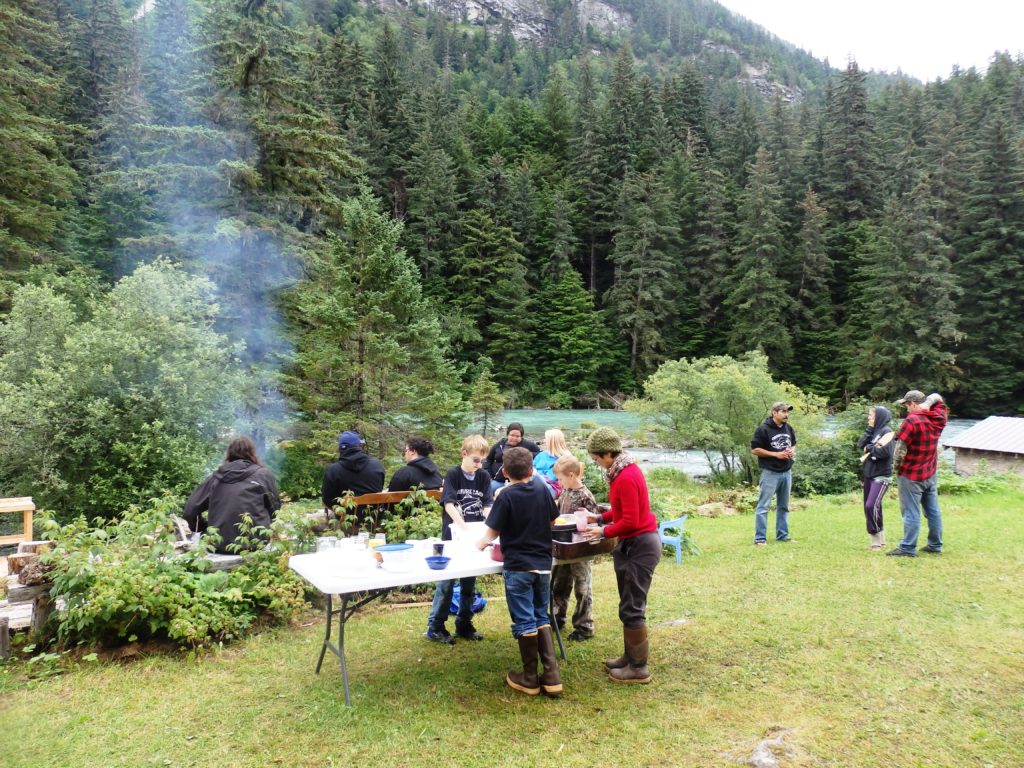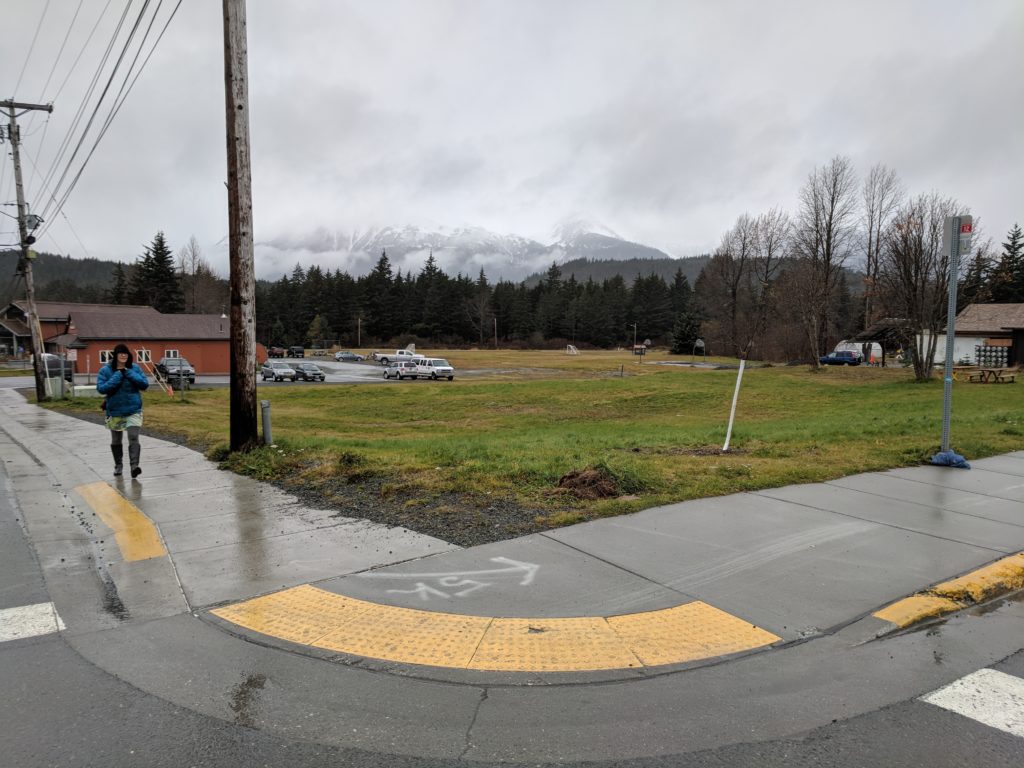Summer camps are a time-honored destination for kids across the nation. Everything from fine arts to space camps draw scores of children ready to learn. But for members of the Chilkoot Indian Association, summer camp is about preserving and revitalizing the culture, values, and beliefs of their nation.
Opened in the 1980s by Austin Hammond, the Lkoot kwáan culture camp offers kids a chance to spend the week learning songs, crafting, fishing, and journaling in order to engage with their culture. Mary Cruz, director of the camp, first attended the camp herself at age eight, and now stresses the importance of it as a means of preserving and passing on the knowledge of her forebears.
Cruz: “So I think when Austin Hammann started running this camp at Lkoot you know, it was really his effort of like, ‘Hey, we’re in a place right now, where we’re losing a lot of things. We’re losing a lot of our language and our songs, our dance, and just our cultural ways of being and knowing.’ And I can see a shift, I can see like those of us who went to camp, a lot of us are involved in the community in that way. And now I feel like that’s so important to keep our kids involved and to pass that on. We are in a state of distress, our people, our culture, our language, especially is in a state of distress. Like we only have less than 60 speakers of our language left, and they’re, they’re all aging right? Most of them are over the age of 70 or 80 years old. And so they’re our knowledge bearers. And so it’s, it’s our job to take as much use as much as that knowledge to pass down to our kids while we can.”
Cruz credits the camp with building her into the community member she is today and hopes that kids will learn some of the same lessons.
Cruz: “So I’m a you know I’m a language teacher, language learner, language enthusiast. I’m pretty involved within the community and I just really feel like that’s all based on what I did and learned growing up at culture camp I just don’t know that I would be the same person that I am today if I hadn’t gone, it taught me discipline, community. You know, I have a lot of bonds with a lot of people that we you know, we went to camp together. And I can just see that, I think things are changing, and that we’re not having the same expectations of people, of kids. And I don’t think that’s necessarily a bad thing in a lot of ways, but when you build discipline, we all grow into adults, right? And if we don’t have that discipline built into us, as we’re growing up, it’s kind of a wake up call, you know, you become an adult, and you’re like, oh, I have to do these things that weren’t really ingrained in me before. And it’s kind of it’s good to learn those things as we as we grow, and even just that community that giving back to the whole of the group, I think is really important.
Cultural Department Director for the Chilkoot Indian Association, Helen Alten, believes that the location of the camp itself, is one of the most important aspects of the experience for campers.
Alten: “When you’re out there, you realize there’s constant sound. And that’s the river. And when we were recording out there last year, we had to cut out the river to be able to hear what people were saying clearly on the tapes. There’s a constant sort of sound, gurgling sound of the river. And then the mountains are right there. So there’s this feeling of being separated from everything else, you’re in your own kind of cocoon space. The sound is its unique sound, this the place is a unique place. So I think that’s part of also being out there you doing culture camp anywhere else, it’s not going to feel the same. It’s not going to sound the same.”
Among the many activities that kids will be participating in, is the making of Chilkoot regalia. According to Cruz, being able to create and hold a piece of that culture, is a crucial aspect of its revitalization.
Cruz: “At culture camp this year, we’re going to be working on regalia. And I think that for our children to have regalia and things of that nature, it brings a sense of pride to them. You know, Walter Soboleff one time, he said, ‘when we know who we are, we stop hurting ourselves.’ And if you look at the statistics, you know, our people are hurting themselves, you know, a lot and I see a shift. When people know who they are, when they know pieces of our culture, then they have pride. And so when we provide a sense of pride and knowledge and knowing of who we are, that’s going to be for the betterment of the future.”
There is no fee to attend the camp, Cruz and Alten say that there are still a few spots available for last-minute applicants to join in and welcome those who are curious to visit. More information can be found on their website. Cruz thanked all over the local businesses, the Chilkoot Indian Association, and the Central Council Tlingit and Haida Indian tribes of Alaska who sponsored this years camp. For KHNS, I’m Brandon Wilks.









